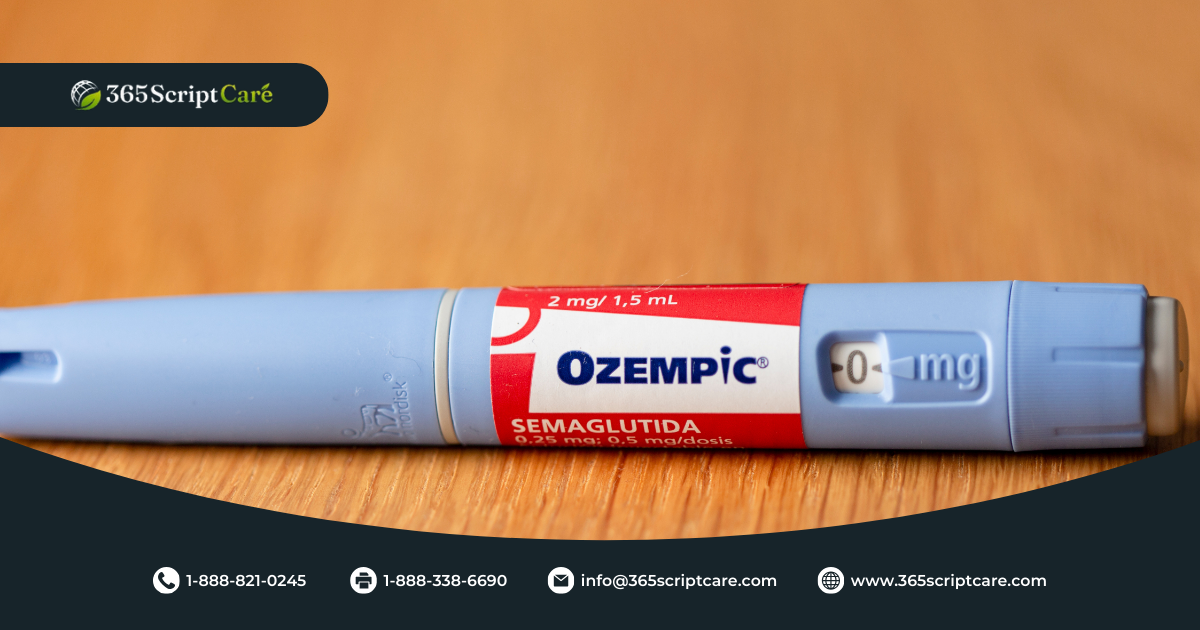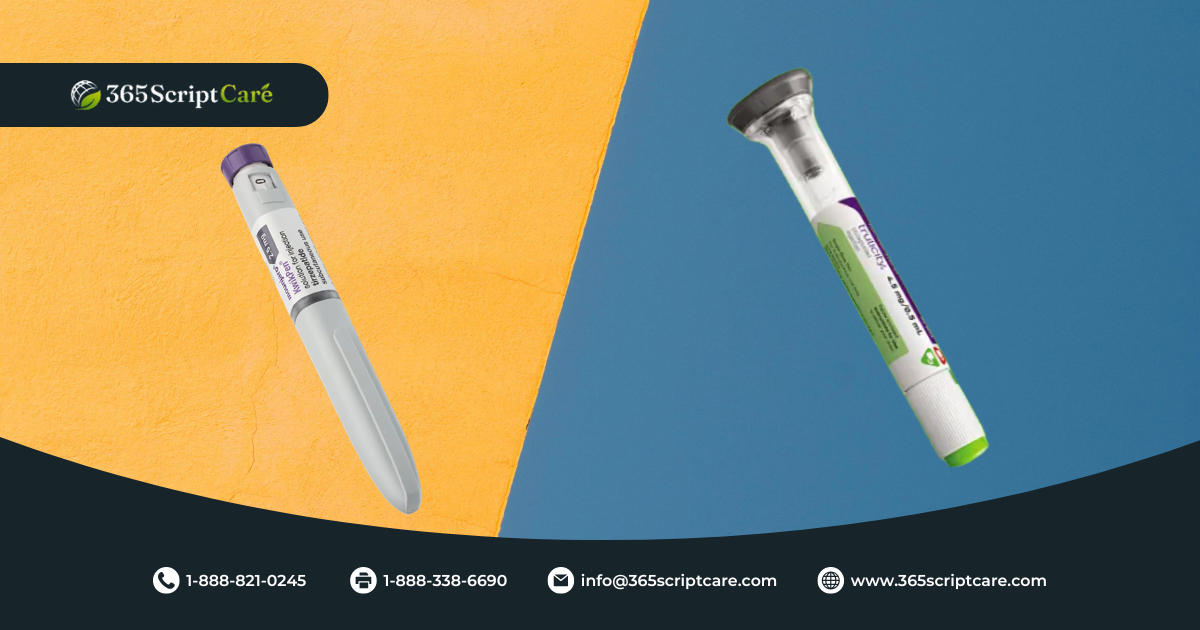Apixaban and Eliquis are two well-known anticoagulant drug choices that require a thorough understanding to support well-informed health decisions. It is critical to understand the minute differences between these two medications. Understanding the finer points of Apixaban and Eliquis is crucial as people start their healthcare journey.
Through this study, people can make decisions that align with their health needs by identifying commonalities, distinctions, and important factors. Patients can collaborate with healthcare providers to create individualized and optimal treatment programs by being aware of the subtleties associated with these anticoagulants.
What is Apixaban?
Apixaban, a direct oral anticoagulant (DOAC), is a pivotal medication in preventing blood clot-related complications. Operating by inhibiting Factor Xa, a key player in the coagulation cascade, Apixaban provides targeted anticoagulation with reduced bleeding risks compared to traditional blood thinners. Widely prescribed, it plays a crucial role in diminishing the risk of strokes and systemic embolism in patients with atrial fibrillation. Furthermore, Apixaban finds application in treating and preventing conditions like deep vein thrombosis (DVT) and pulmonary embolism (PE).
Uses and Benefits of Apixaban
Apixaban, a direct oral anticoagulant (DOAC), is employed across various medical scenarios due to its efficacy and safety profile. The primary uses and benefits of Apixaban include:
- Preventing Strokes and Systemic Embolism: Apixaban is commonly prescribed to reduce the risk of strokes and systemic embolism in patients with atrial fibrillation, a condition characterized by irregular heartbeats.
- Treatment and Prevention of Deep Vein Thrombosis (DVT): Apixaban is effective in the treatment and prevention of DVT, a condition where blood clots form in the deep veins, commonly in the legs.
- Prevention of Pulmonary Embolism (PE): It is utilized to prevent pulmonary embolism, a potentially life-threatening condition where blood clots travel to the lungs.
- Reducing Thromboembolic Events: Apixaban has shown consistent efficacy in reducing thromboembolic events, making it a reliable choice in anticoagulant therapy.
- Predictable Pharmacokinetics: Apixaban’s predictable pharmacokinetics contribute to its reliability in achieving therapeutic effects with a consistent and manageable dosage.
- Reduced Monitoring Requirements: Unlike older anticoagulants like warfarin, Apixaban typically requires less frequent monitoring, offering a more patient-friendly experience.
- Lower Risk of Drug Interactions: Apixaban has a lower propensity for interactions with other medications, simplifying treatment regimens for individuals with various health conditions.
Recognizing Apixaban’s applications and advantages highlights the drug’s importance as a flexible and potent anticoagulant that enhances patient outcomes for a variety of thrombotic and cardiovascular diseases.

What is Eliquis
Eliquis, a renowned anticoagulant, is a medication designed to inhibit Factor Xa, a crucial element in the blood clotting process. Manufactured by Bristol-Myers Squibb and Pfizer, Eliquis is classified as a direct oral anticoagulant (DOAC). It shares similarities with Apixaban, containing the same active ingredient. Eliquis stands out for its predictable pharmacokinetics, offering a reliable option for anticoagulation therapy. Widely prescribed, it is known for its effectiveness in preventing strokes, systemic embolism, and deep vein thrombosis, with a favorable safety profile.
Comparison with Other Anticoagulants
Eliquis distinguishes itself among anticoagulants through predictable pharmacokinetics and a lower risk of major bleeding compared to traditional options like warfarin. Its targeted inhibition of Factor Xa provides efficacy with reduced complications. In contrast to older blood thinners requiring frequent monitoring, Eliquis offers a more patient-friendly experience. The medication’s versatility is evident in its applications across various cardiovascular conditions, positioning it as a reliable and safer alternative.
Similarities Between Apixaban and Eliquis
Apixaban and Eliquis, both direct oral anticoagulants (DOACs), share several key similarities:
- Mechanism of Action: Both drugs operate by inhibiting Factor Xa, a pivotal component in the blood clotting process. This targeted inhibition prevents the formation of blood clots, reducing the risk of thromboembolic events.
- Indications: Apixaban and Eliquis are indicated for similar medical conditions, including the prevention of strokes and systemic embolism in patients with atrial fibrillation, as well as the treatment and prevention of deep vein thrombosis (DVT) and pulmonary embolism (PE).
- Oral Administration: Both medications are administered orally, providing a convenient and accessible form of anticoagulation therapy compared to older options that may require injections.
- Effectiveness: Clinical studies support the effectiveness of both Apixaban and Eliquis in preventing thromboembolic events, demonstrating their reliability in anticoagulant therapy.
- Safety Profile: In comparison to traditional blood thinners, Apixaban and Eliquis exhibit a more favorable safety profile, with a reduced risk of major bleeding complications.
Recognizing these parallels highlights how Apixaban and Eliquis can be used interchangeably in specific clinical situations, offering options for anticoagulant therapy.
Apixaban vs. Eliquis: Cost Factors
The cost considerations of Apixaban and Eliquis, both prominent anticoagulants, encompass various factors influencing financial aspects and accessibility. While sharing the same active ingredient, potential differences in formulation and manufacturing may impact pricing.
Dosage strength, packaging variations, and geographical location further contribute to cost disparities. Insurance coverage plays a pivotal role, as plans may favor one medication over the other, affecting overall affordability for patients. Balancing the clinical effectiveness and financial implications of Apixaban and Eliquis becomes essential, enabling healthcare providers and patients to make informed decisions aligned with both medical and economic considerations.
Side Effects and Adverse Reactions
Making educated medical decisions requires knowledge of the possible negative effects and responses associated with Eliquis and Apixaban. Bruising, bleeding, and gastrointestinal distress are typical adverse effects. Despite the positive safety profiles of both drugs, major side effects such as allergic reactions or severe bleeding are possible.
Patients need to be alert and notify their healthcare providers right away if they experience any strange symptoms. To successfully limit risks and ensure the safe and optimal use of Apixaban and Eliquis in anticoagulant therapy, it is necessary to accept individual variances in reactivity and emphasize the need for tailored medical advice.
Precautions and Contraindications
Patients considering Apixaban and Eliquis must be aware of specific precautions and contraindications to ensure safe usage. Individuals with a history of allergic reactions to these medications or those at an increased risk of bleeding disorders should exercise caution. Pre-existing conditions such as liver or kidney impairment may require dosage adjustments or careful monitoring.
Contraindications include pregnancy, breastfeeding, and certain interactions with other medications. It is imperative to communicate comprehensively with healthcare providers about medical history, ongoing treatments, and potential contraindications, allowing for personalized guidance in navigating anticoagulation therapy effectively.
Recommended Doses for Apixaban and Eliquis
The recommended doses for Apixaban and Eliquis are crucial aspects of their effective utilization. Apixaban, typically prescribed as 5 mg orally twice daily, may be adjusted based on specific medical considerations. Eliquis, sharing a similar dosing regimen, often involves a 5 mg oral administration twice daily, with potential modifications based on individual patient factors. Dosage adjustments are essential for patients with renal impairment.
When it comes to anticoagulant medication, Apixaban and Eliquis stand out as practical choices with distinct features. Through comprehension of their commonalities, distinctions, and essential factors, patients can collaborate with healthcare professionals to make knowledgeable decisions on their course of treatment. Through an in-depth study, people are better equipped to understand Apixaban and Eliquis and make more educated and independent healthcare decisions.
Anticoagulant drugs are easily purchased at 365 Script Care, offering a dependable source for people in need of these essential prescriptions. This guarantees a smooth and reliable path to obtain essential anticoagulant therapies.



